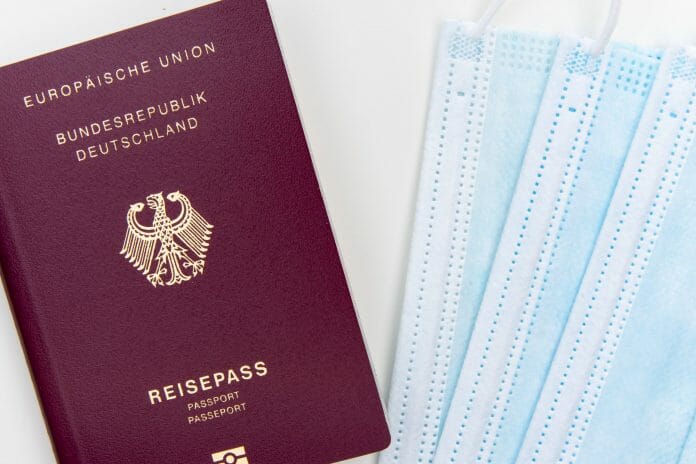In early February, the Immunitee Health Passport became the country’s first health passport to be accepted into Singapore through a partnership with Temasek-founded Affinidi.
The Immunitee Health Passport is a system designed to store personal immunisation records and vaccine data, with the Unifier platform providing interoperability to securely share the necessary data with the various national health check systems being put in place globally.
“We believe health passports will become just as important as a normal travel document, to ensure that travelers comply with both Covid-19 testing and vaccination protocols. This will allow travel bubbles to open up faster and life to return to some form of normality,” Dr Nick Boden, Chief Executive Officer at Immunitee tells BusinessToday.
Verifiable digital copies of tests and vaccinations will be the standard, he says, to prevent fraud, much in the same way that passports have evolved from low tech paper documents to the largely tamper-proof documents that they are today, where in many cases they embed digital technologies.
Currently, the Immunitee Health Passport will allow users to download it and use at partner clinics (Qualitas clinics), to pre-register and link their Covid-19 test to the laboratory doing the test (Clinipath and Gribbles).
These labs and clinical facilities will be linked at the back end through APIs.
When the vaccination process starts, the same will happen. A QR code will be generated and read once travelers land in Singapore, allowing them to enter the country.
According to Dr Boden, the passport stores information onto the blockchain using a patent pending security system awarded in August 2020. Every user and facility receive a private key, and there are multiple layers of authentication to secure user data.
Unlike storing information on a cloud server, blockchain ensures extremely secure and private storage personal information.
Privacy Matters
“The biggest benefits of blockchain are the protection of private and confidential patient information, and the fact that it places control of the sharing of that information in the hands of the patient, who is the rightful owner,” Dr Boden says.
Should a user wish to allow a clinic to read a QR code, that clinic must first and foremost be securely registered and validated, and the patient gives permission to that facility to scan their QR code to access the relevant information.
“There is, at no time, any wholesale sharing of information.”
Thus far, the health passport by Immunitee has had positive feedback from the private sector and GLCs.
“The fact that Immunitee Health Passport is accepted in Singapore via our partnership with Affinidi under their Unifier digital credential platform is a testament to our industry-leading Vaccine Registry Management system,” Dr Boden says.
No Rush
The Head of Science and Technology at EMIR Research, Ameen Kamal in his commentary, ‘Do Not Rush Vaccine Passports, Address Fundamental Issues’ said mechanisms to help re-open the economy and international borders such as health passports have been met with increased enthusiasm and strong support from economic sectors.
“However, issues related to immunological uncertainties, social-ethical concerns related to its implementation as well as operational challenges in lobal standardisations have yet to be addressed in order for vaccine passports to be effective,” he says.
“Vaccination passports are not the same as immunity passports. There are still chances for some vaccinated individuals to not be successfully immunized. As for those who gained immunity, we don’t know yet how long it would last,” he adds.
He also highlights that health passport carriers may still be vulnerable to infections and severe symptoms from emerging Covid-19 strains, further complicating the validity of health passports.
There have been multiple variants of the virus that causes Covid-19. The UK identified a variant called B.1.1.7 with many mutations in the fall of 2020. In South Africa, another variant called B.1.351 emerged independently of B.1.1.7.
Ameen also raises the issue from a social, legal, and ethical standpoint that needs to be considered for vaccine passport implementation.
Health passports could also discriminate against people who are currently not recommended as vaccine recipients due to lack of clinical and real-world data such as children and pregnant or breastfeeding women.
Quoted in Malay Mail, the Galen Centre for Health and Social Policy Chief Executive Officer, Azrul Mohd Khalib said the country was in more urgent need of a clear exit strategy for the Covid-19 pandemic, one with measurable benchmarks.
Azrul who shares a similar sentiment to Ameen says there are no currently scientific evidence that any of the current Covid-19 vaccine completely prevents infection or asymptomatic transmission.
Health director-general Tan Sri Dr Noor Hisham Abdullah previously said it was too early to decide on whether Covid-19 vaccination will serve as the basis for an “immunity passport” before one can start moving around freely.










